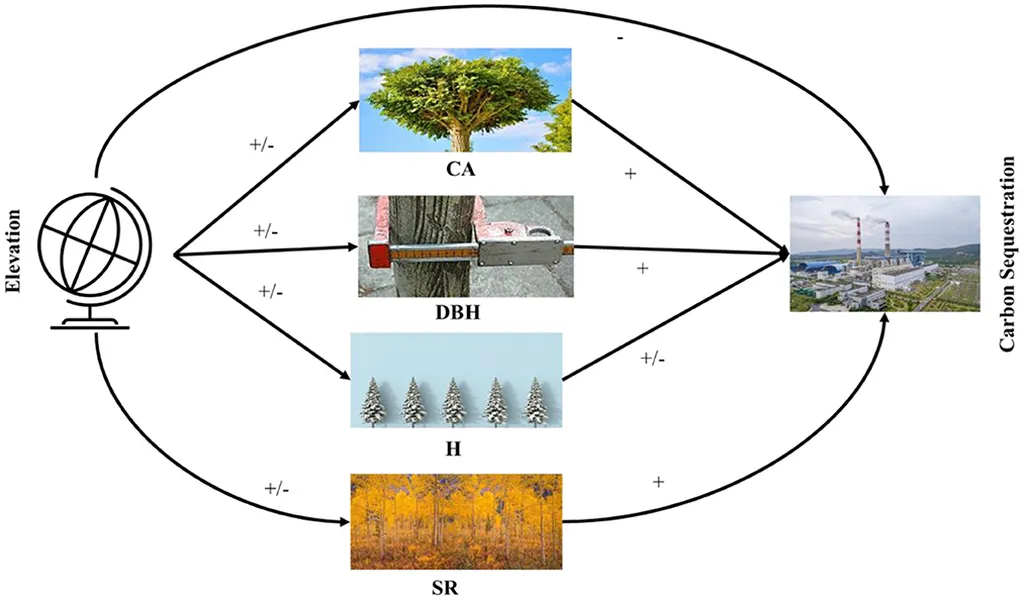In the heart of the Basho Valley, a new study is shedding light on the critical role that high-altitude mountain ecosystems play in carbon sequestration and soil health. The research, led by Eshrat Fatima of the Department of Environmental Sciences at Fatima Jinnah Women University in Rawalpindi, Pakistan, provides a comprehensive assessment of carbon stocks and soil health indicators across forestland, grassland, and cropland. Published in the Journal of Taibah University for Science, the findings have significant implications for climate mitigation and land management, particularly for the agriculture sector.
Mountain ecosystems, despite their limited global coverage, are vital carbon sinks. However, their capacity is increasingly threatened by land-use changes and anthropogenic pressures. Fatima’s study reveals that forestland in the Basho Valley contains the highest total carbon stock at 76.49 t/ha, followed by grassland (68.80 t/ha) and cropland (59.35 t/ha). Soil, the largest carbon reservoir, plays a crucial role in this dynamic.
The research highlights the detrimental effects of forest conversion on carbon storage potential. “Our findings underscore the urgent need for conservation and sustainable management of mountain forests to safeguard these critical carbon sinks,” Fatima emphasizes. This is particularly relevant for the agriculture sector, where land-use changes can have profound impacts on carbon stocks and soil health.
The study also reveals that soil organic matter correlates positively with carbon stock, while bulk density correlates negatively. This underscores the importance of maintaining soil health to enhance carbon sequestration. For the agriculture sector, this means adopting sustainable practices that improve soil organic matter and reduce soil compaction.
The implications of this research extend beyond the Basho Valley. As climate change mitigation becomes increasingly urgent, understanding the role of mountain ecosystems in carbon sequestration is crucial. The study’s findings can inform regional climate policies and guide land management practices to enhance carbon storage and soil health.
For the agriculture sector, the research highlights the need for sustainable land-use practices that balance productivity with environmental conservation. By adopting practices that improve soil health and reduce deforestation, farmers can contribute to climate mitigation while enhancing the resilience of their lands.
As we look to the future, this research shapes the development of policies and practices that promote sustainable land management. It calls for a paradigm shift in how we view and manage mountain ecosystems, recognizing their vital role in carbon sequestration and climate mitigation. For the agriculture sector, this means embracing sustainable practices that not only enhance productivity but also contribute to environmental conservation.
In the words of Fatima, “The conservation and sustainable management of mountain forests are not just environmental imperatives but also economic necessities.” This research provides a roadmap for achieving these goals, guiding us towards a more sustainable and resilient future.

